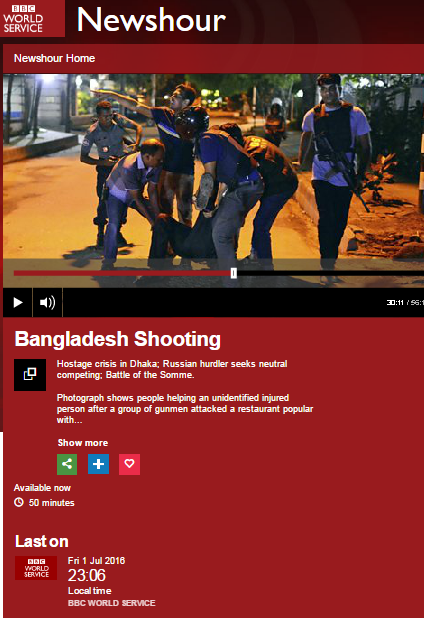On December 20th the BBC News website published an article titled “UN asks Israel to pay Lebanon $850m over oil spill“.
The report relates to the decidedly Kafkaesque story of the UNGA passing a non-binding resolution demanding that Israel pay compensation to Lebanon for damage caused to a power plant during the 2006 Second Lebanon war, which was of course initiated (under the noses of UNIFIL forces in southern Lebanon) by the very terrorist organization which the UN Security Council had demanded be disbanded and disarmed two years earlier in Resolution 1559.
At the end of that article we see an interesting example of how an inaccurate narrative becomes a permanent fixture in BBC reporting and then goes on to become flawed “historical record” in its archive material.
Readers are told that:
“The 2006 conflict began when the Lebanese militant group Hezbollah launched a raid into Israel and captured two Israeli soldiers.
Israel launched massive air and sea attacks on targets all over Lebanon, then invaded the south of the country.
More than 1,000 Lebanese, mostly civilians, and about 160 Israelis, mostly soldiers, died.”
Of course Eldad Regev and Udi Goldwasser were not only kidnapped, but also killed. Significantly, the BBC makes no mention of the fact that Hizballah’s cross-border raid was accompanied by missile fire on Israeli communities before going on to describe the Israeli response and neither does it clarify that well over four thousand missiles were launched at civilian targets in Israel during the 34-day conflict. No mention is of course made of the fact that Hizballah is an Iranian-backed terrorist organisation.
Not for the first time we see the BBC claiming that the Lebanese casualties in that war were “mostly” civilians without providing any factual and independently verified evidence to support that claim. As has been noted here before:
“The BBC claims that the war’s Lebanese casualties were mostly civilians but does not inform audiences that Lebanese figures do not differentiate between civilians and combatants, that Lebanese officials reported even before the conflict was over that some 500 of the dead were Hizballah fighters, that UN officials gave similar figures and that Israeli estimates stand at around 600 – more than half (and therefore “most”) of the total Lebanese casualty figures.”
And thus, in a mere fifty-two words, the BBC has once again misled its audiences by omission and promoted an inaccurate narrative which – unless corrected – will become part of the permanent public record on its website.




